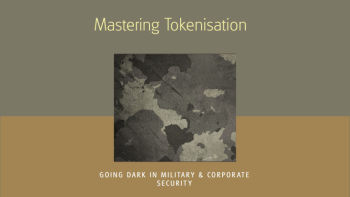GEOPOLITICS: Racial Cycles By George Friedman
GEOPOLITICS: Racial Cycles
By George Friedman posted on July 28, 2020
Via GEOPoliticalMatters.com
Slavery was the law of the land when the United States was founded, and it would take nearly a century, and a civil war, for it to be undone. It wasn’t until 1954 that segregation in schools was made illegal. It wasn’t until 1964 that Black Americans were permitted to enter restaurants and hotels as a matter of right. It wasn’t until 1965 that Blacks were given the unambiguous right to vote. And just as the end of slavery did not end oppression, the passage of these laws did not mean obedience to them.
A history like that creates pain and confusion that can’t be cured by merely relenting from oppression. For Blacks, fear and anger are like an heirloom passed through generations. Some whites are sincerely committed to ending this legacy, others are profoundly indifferent, and still others want to shamelessly exploit it. When I look at those protesting in the streets of America these past few months, I wonder which is which. But it really doesn’t matter. All of this has become a ritual to be acted out toward no end. Race, rage and violence are part of the Republic we founded, and there is no evidence that it will be solved.
In my book “The Storm Before the Calm,” I argue that there is a 50-year cycle in American history. In the final decade of every 50-year cycle, the nation enters a period of deep unrest, self-doubt and self-loathing. It always begins with, and is thus inextricably tied to, the question of race.
The 1870s was a time of economic pain inflicted by the Civil War, which was fought over the question of race. (Like all wars, it had many causes, but 600,000 Americans didn’t die over the question of tariffs.) The Reconstruction revealed the anger of the defeated South and the resentment of Northerners, who were shocked to find that the end of the war meant the recognition of Black humanity. In short, the violence of reconstruction announced the coming
of the 1870s. In the 1920s, the Ku Klux Klan roamed the country relatively unopposed until the Great Depression brought everything in America to a halt. The racial turmoil of the 1960s – the assassination of civil rights leaders, the riots in Detroit, and so on – ushered in the political and economic failures of the 1970s – Nixon’s resignation, 20 percent inflation rates and double-digit unemployment.
Before the 1870s, the 1930s, the 1970s and now the 2020s, there was a sense, not fully defined, that something was wrong. The edifice of an era doesn’t suddenly collapse. It slowly slides to the ground. And as the ground starts slipping – as the triumph and well-being of the prior decades begin their descent – those most exposed, Black and white, are filled with undefined dread. In their dread, they do what Americans have done since the founding: turn to race as the problem. The unrest intensifies as it spreads, as does the fear it instils. And as fear spreads, so does the willingness of the power structure to allow its instruments of protection to take action. The events we are seeing have a long history. They always begin with the illusion that they will force the white power structure not only to change some minor things but also to capitulate. But frightening the powerful has only one end. Both well-meaning and ill-intended Blacks and whites soon enough will stop protesting. Some will die in a hail of bullets. Some will go to jail. Some will become mayors and earn their MBAs. The politicians, never in the street, will calculate how they can benefit from all this. But it will end in a few years, and American history will move on with the race issue simmering beneath the surface and surging every 50 years or so.
It’s interesting to think of the Black experience in America alongside the immigrant experience. Many immigrant groups came to America and mastered being American, paradoxically by enclosing themselves in their own community. The Chinese came here and built businesses serving first other Chinese and later the rest. They banded together and then took on the world, backed by a community that was doing the same. Their children or grandchildren go to college and enjoy the
comfort being American offers. Social cohesion within an ethnic group was the way America worked.
Of course that would be humiliating for Black Americans because they are not immigrants. They are Americans, here for far longer than my family and most families. The idea that they should now act as if they were strangers in their own land and do that for several generations cuts against the very heart of the Black claim against America.
I don’t really know what can be done. I know only that when Black power meets white power, the historical outcome has not been good.
About George Friedman
George Friedman is a Hungarian-born U.S. geopolitical forecaster, and strategist on international affairs. He is the founder and chairman of GeopoliticalFutures.com an online publication that analyses and forecasts the course of global events.









